What is the Wagner mercenary group led by Yevgeny Prigozhin?
Vladimir Putin has leant on military contractors to claim victories in Ukraine but the Wagner leader’s threats against the country’s military leadership show tensions escalating to an alarming extent
Your support helps us to tell the story
From reproductive rights to climate change to Big Tech, The Independent is on the ground when the story is developing. Whether it's investigating the financials of Elon Musk's pro-Trump PAC or producing our latest documentary, 'The A Word', which shines a light on the American women fighting for reproductive rights, we know how important it is to parse out the facts from the messaging.
At such a critical moment in US history, we need reporters on the ground. Your donation allows us to keep sending journalists to speak to both sides of the story.
The Independent is trusted by Americans across the entire political spectrum. And unlike many other quality news outlets, we choose not to lock Americans out of our reporting and analysis with paywalls. We believe quality journalism should be available to everyone, paid for by those who can afford it.
Your support makes all the difference.Russian soldiers fighting in Ukraine have been supported on the battlefield by tens of thousands of mercenaries from a shadowy group led by a businessman and longtime affiliate of president Vladimir Putin.
The Wagner Group is a private military company under the control of Yevgeny Prigozhin that cut its teeth in deployments to Crimea and eastern Ukraine’s Donbas region in 2014 and has since dispatched troops to several conflicts in the Middle East and Africa, including the Syrian Civil War.
In Russia’s invasion of Ukraine, Wagner has proved indispensable, but an apparent power struggle between the Kremlin and the outspoken Mr Prigozhin has led to the group having its wings clipped by Moscow.
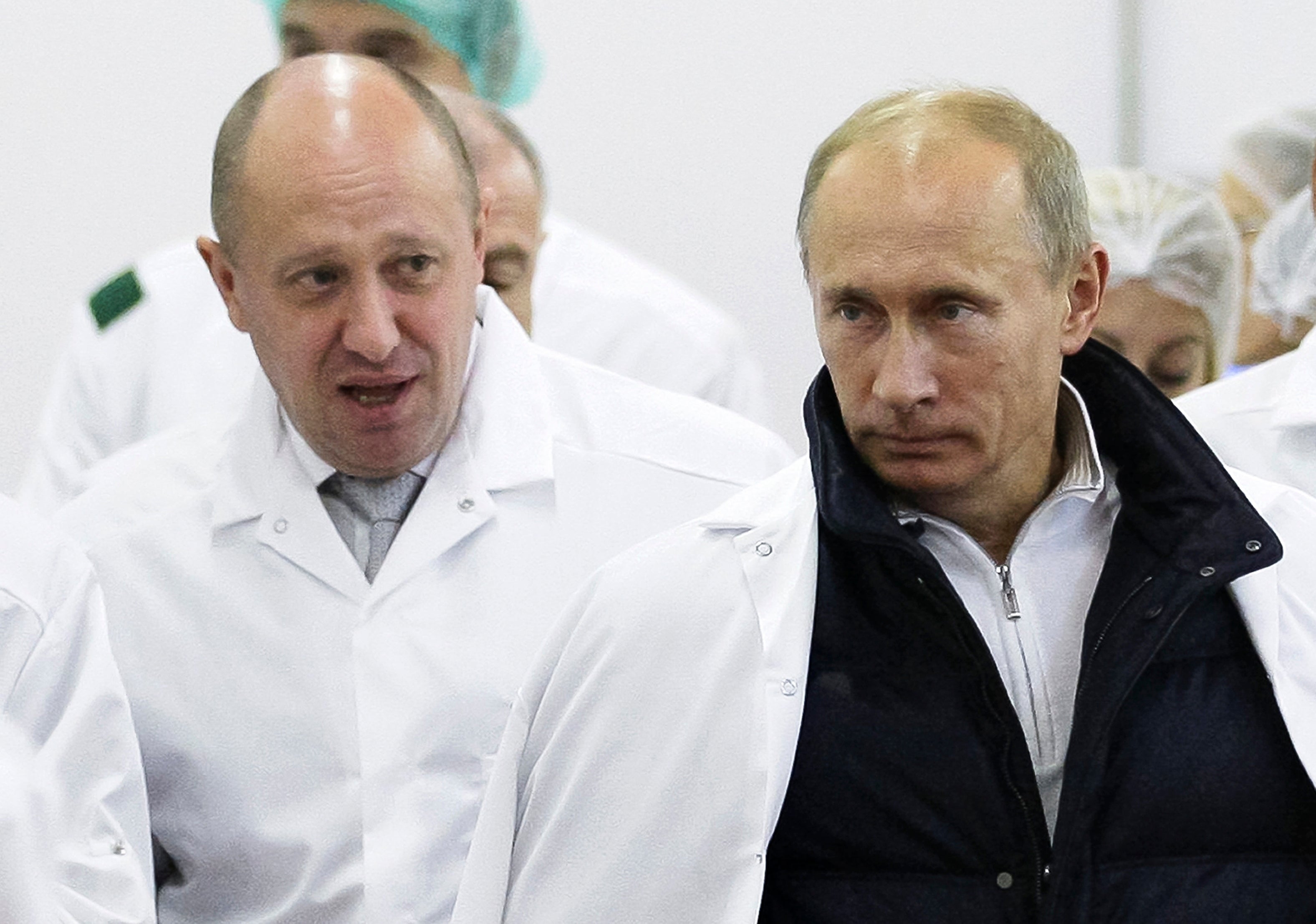
The friction escalated to a crisis point on Friday, 23 June, when Mr Prigozhin accused his country’s defence ministry, Sergei Shoigu, of “destroying” his fighters and concocting lies to justify the invasion of Ukraine. Mr Prigozhin called for armed mutiny in an explosive rant on Telegram in which he vowed to stop the “evil” of the Kremlin’s top brass.
The Wagner Group’s leader did not go after Putin in his tirade, instead alleging that for more than a year and over 350,000 casualties into the war — a large part of which Mr Prigozhin’s group is responsible for — the Russian president had been deceived by Mr Shoigu.
“The war was needed ... so that Shoigu could become a Marshal, so that he could get a second Hero Star… the war wasn’t for demilitarising or de-Nazifying Ukraine. It was needed for an extra star,” Mr Prigozhin said on Telegram, per the BBC.
Moscow’s Interfax news agency reported that Kremlin spokesman Dmitry Peskov confirmed Mr Putin has been briefed on the matter. The Kremlin’s Federal Security Service (FSB) has opened a criminal action against Mr Prigozhin and asked him to “stop illegal actions,” according to the Tass news agency.
The defence ministry has issued a denial of the accusations, calling them “an informational provocation”.
The warnings made by the Kremlin have not hindered Mr Prigozhin’s threats. In a new Telegram message, he warned that his forces had crossed the border from Ukraine and were ready “to destroy anyone who stood in their way” as they entered the Russian city of Rostov-on-Don.
However, as of late Friday, 24 June, there was no firm evidence that the Wagner Group was advancing on Rostov.
Onlookers around the world were trying to determine whether Mr Prigozhin’s alleged “mutiny” offered a serious threat to the status quo in Moscow, athough many agreed that the open opposition – and Mr Putin’s initial failure to address it publicly – may serve to undermine the administration.
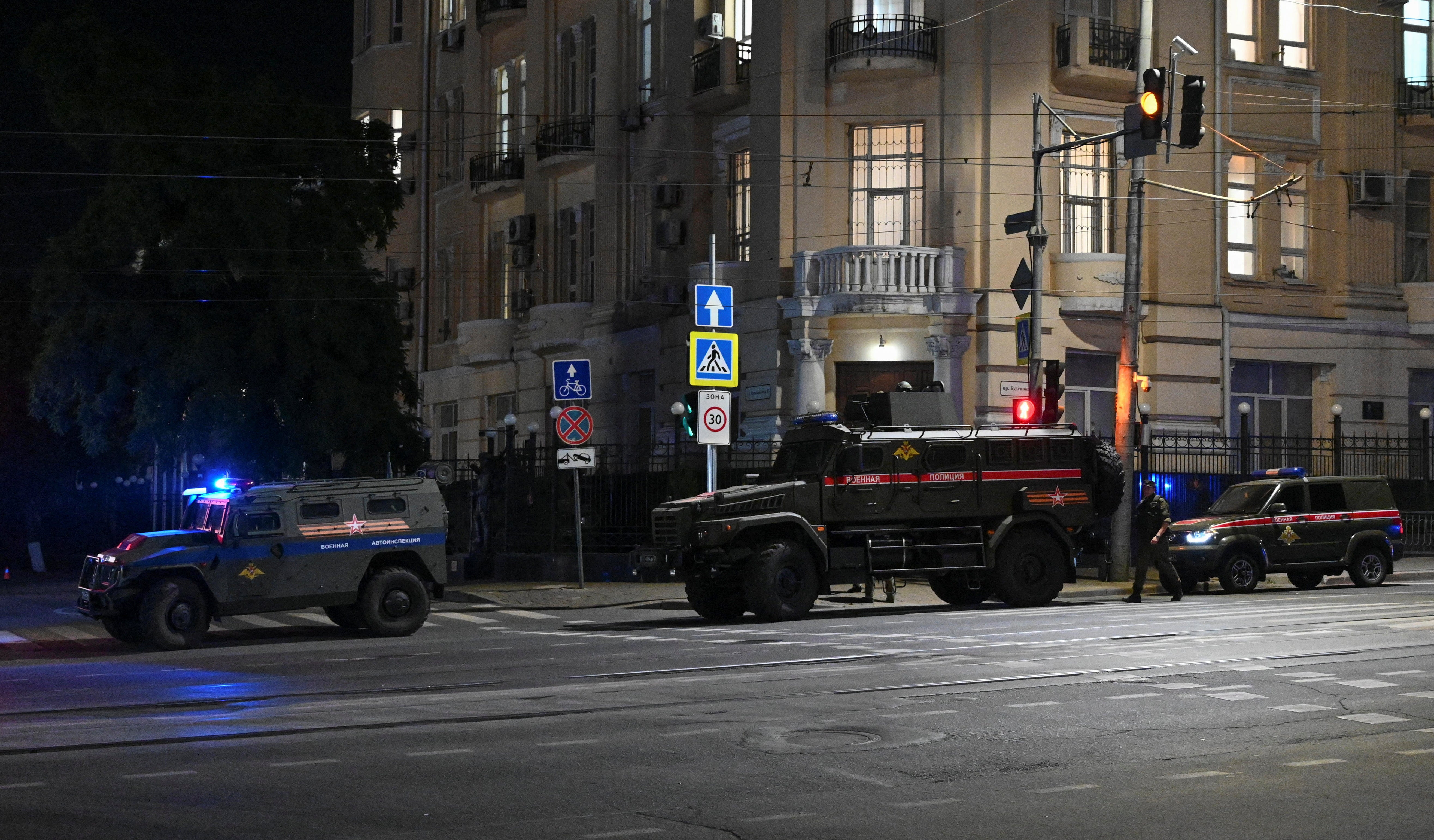
Mr Prigozhin – a 61-year-old ex-convict sometimes known as “Putin’s chef” because his catering business has hosted dinners for the Russian president and fed the Kremlin’s armed forces – had denied all links with the group until September last year when he announced he was “proud” to be its founder.
He said he founded Wagner to support Russian-backed separatists in the Donbas conflict.
“I cleaned the old weapons myself, sorted out the bulletproof vests myself and found specialists who could help me with this,” Mr Prigozhin said. “From that moment, on 1 May 2014, a group of patriots was born, which later came to be called the Wagner Battalion.”
Dmitry Utkin, a former Russian intelligence officer, is alleged to be a co-founder who remains near the top of the group’s command.
Since its formation, Wagner has been accused of committing human rights abuses in Ukraine, Syria, Libya, the Central African Republic, Sudan, Mali and Mozambique.
The group is also believed to be working for the Burkina Faso government against an Islamist insurgency.
Prior to admitting his involvement, Mr Prigozhin had a history of suing Russian and Western news outlets that alleged his ties to the group. His secretive stance was to protect the Wagner soldiers, he has claimed.
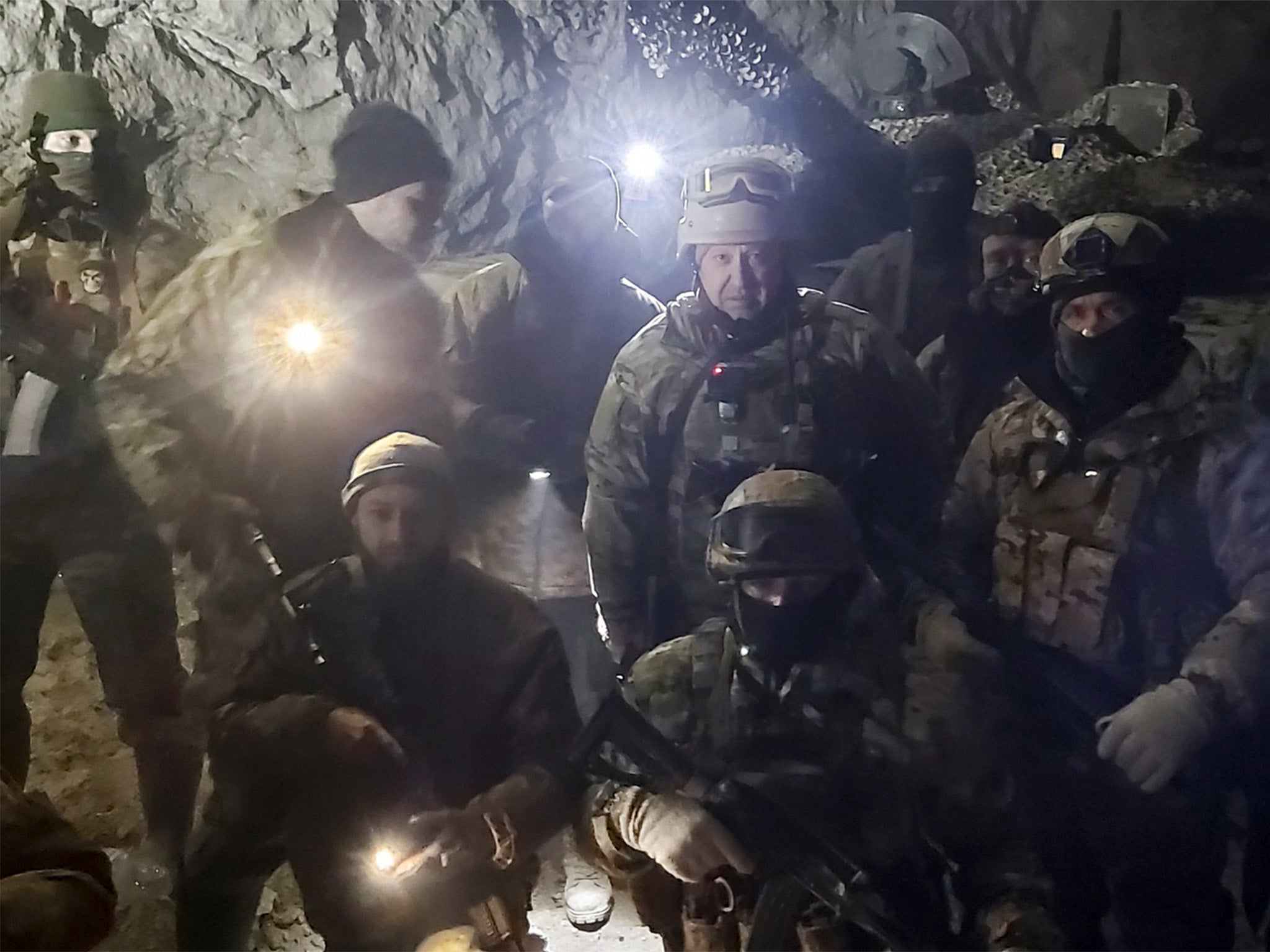
Mr Prigozhin was finally forced to confess his links with Wagner as the group rose to prominence in the Ukraine conflict. British intelligence puts the number of Wagner troops active in Ukraine at 50,000, comprising a quarter of Russia’s total strength.
War contractors are nothing new but military analysts say the Kremlin has been heavily reliant on Wagner due to the heavy losses incurred by official Russian forces during the war, along with difficulties in recruitment.
The UK’s Ministry of Defence (MoD) first reported that Wagner had been deployed in Ukraine on 28 March 2022, little over a month into the conflict after Russian losses had already begun to hamper the pace of the initial assault.
Wagner has since then played significant roles in capturing towns such as Soledar, Popasna and Lysychansk – offering relative operational competence while the Kremlin has been forced to repeatedly switch around command of its own forces in the face of losses.
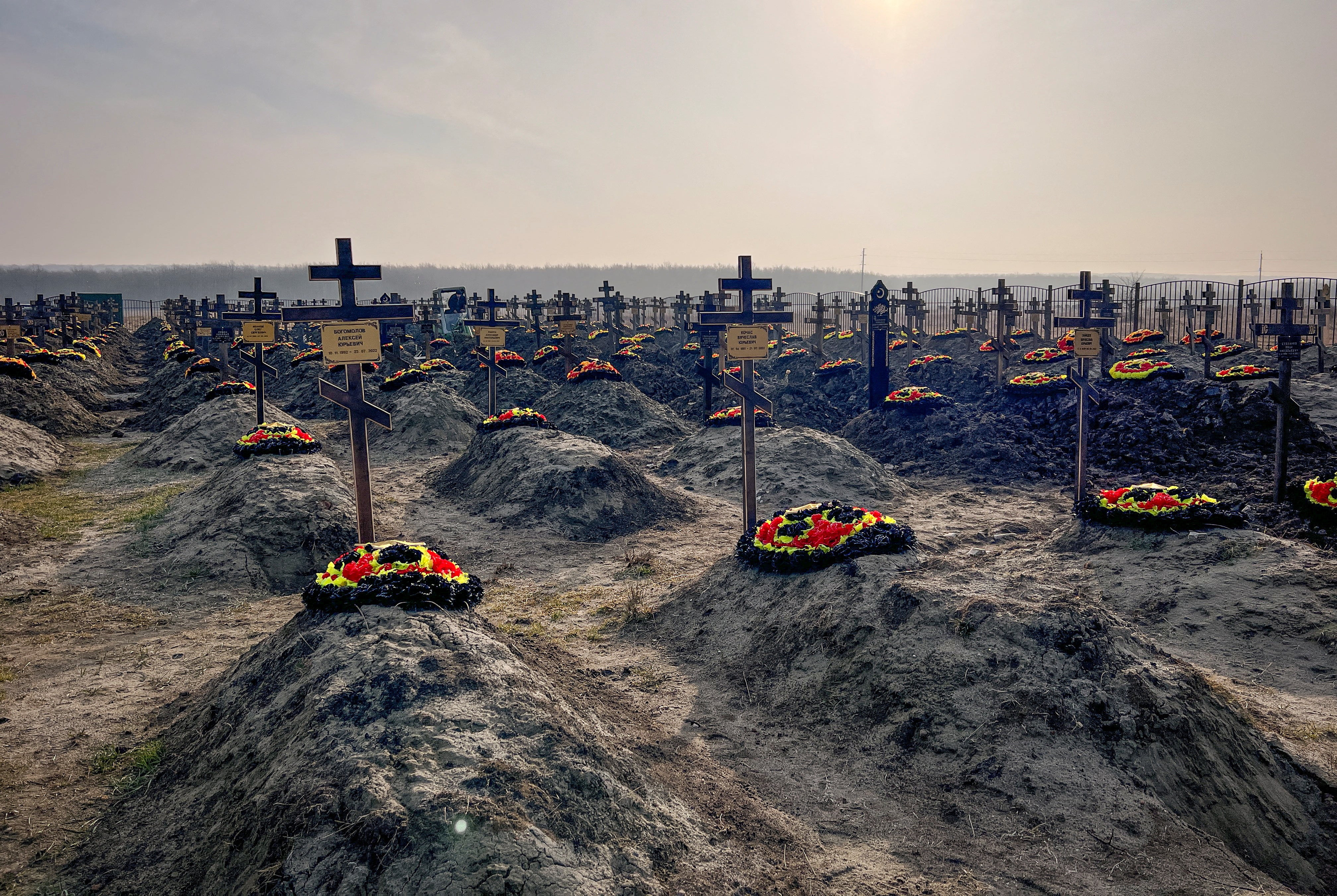
Mr Prigozhin has been at pains to claim victories for Wagner in Ukraine, sometimes putting him at odds with the Kremlin line. He has even accused Russia’s defence ministry of taking credit for Wagner successes.
In the battle for Soledar, a small town subject to an intense assault as part of Russia’s still-ongoing campaign to take over the city of Bakhmut, Mr Prigozhin said his mercenaries had triumphed over Ukrainian forces days before the Kremlin said its own troops had done the same.
Bakhmut is prized by Moscow as its capture would put Russian forces in a stronger position in the goal of capturing all of the Donetsk and Luhansk regions that make up the Donbas.
On 12 February, Mr Prigozhin said Wagner had taken the village of Krasna Hora near Bakhmut, making no mention of Russian forces as Moscow began to launch a major offensive targeting the Donetsk town along with several other frontline settlements.
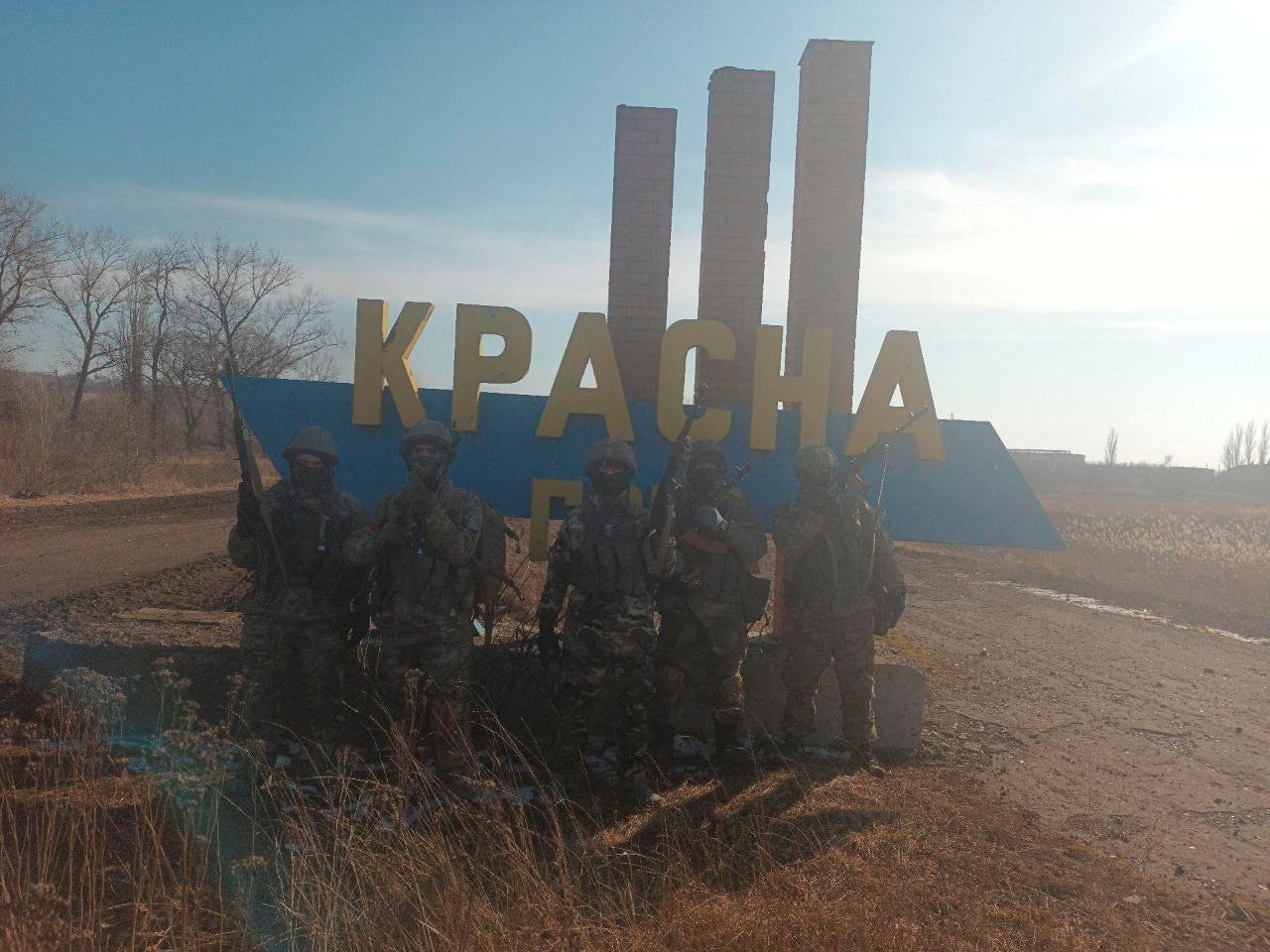
Speculation has raged over Mr Prigozhin’s ambitions in Russian politics and there are signs that Mr Putin is sensitive to any potential challenges by his former cook.
The Kremlin has moved to clip Mr Prigozhin’s wings, ordering him to halt his public criticism of the defence ministry while advising state media to stop mentioning him or Wagner by name.
Mr Prigozhin has since confirmed that he had also been stripped of the right to recruit convicts from prisons – a key feeding ground for Wagner’s ranks – ceding the power back to the government for its own forces.
Sergei Markov, a former Kremlin adviser who maintains contacts in political circles, said the Russian government extracted a promise from Mr Prigozhin that he would not create his own political movement or join a parliamentary party unless asked to do so by officials.
“They are a little afraid of him and find him an inconvenient person,” Mr Markov said.
The group, formally PMC Wagner, recently moved its headquarters to an imposing glass high-rise in St Petersburg, which also acts as a technology centre and holds exhibits of advanced weaponry along grey corridors filled with camouflaged personnel.
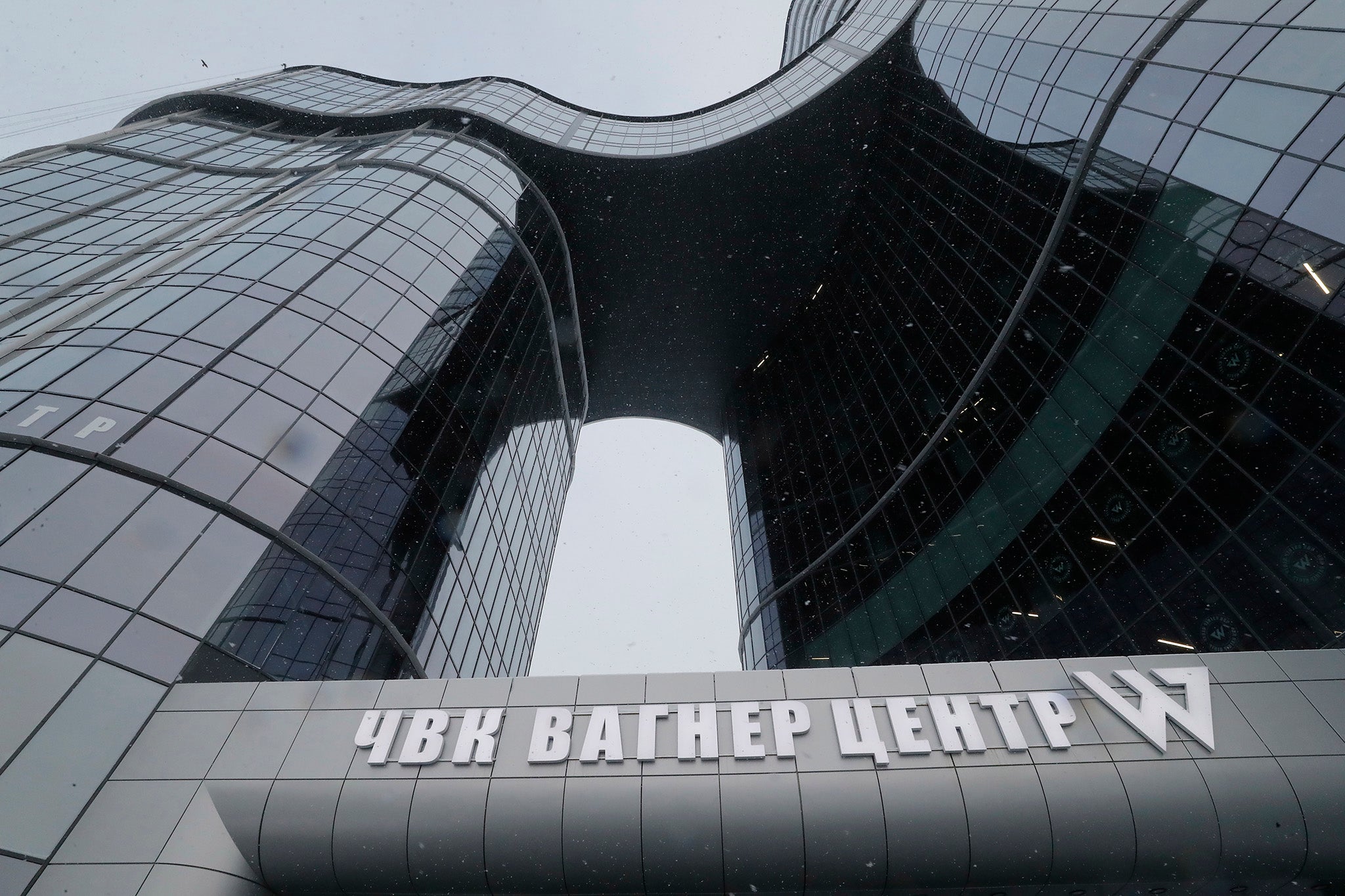
Unsettling accounts of life in the mercenary group have surfaced recently from former members including Andrei Medvedev, who sought asylum in Norway in January after deserting a Wagner regiment in Ukraine.
The 26-year-old said sergeants were ruthless in their attempts to recruit new fighters.
“They would round up those who did not want to fight and shoot them in front of newcomers,” he alleged in an interview with CNN.
“They brought two prisoners who refused to go fight and they shot them in front of everyone and buried them right in the trenches that were dug by the trainees.”
The MoD said last July that Wagner was lowering recruitment standards to include formerly blacklisted individuals.

Mr Medvedev claimed he joined Wagner as a volunteer after serving in the Russian military. He said Wagner fighters were often sent into battle with little direction.
Two former Wagner fighters captured by Ukraine told CNN of devastating losses in assaults reminiscent of First World War charges.
Recalling his first assault near the village of Bilohorivka in Luhansk, one said: “There were 90 of us. Sixty died in that first assault, killed by mortar fire. A handful remained wounded.”
The other fighter said he was involved in a push for Lysychansk on the Luhansk-Donetsk border.
“The first steps into the forest were difficult because of all the landmines spread out. Out of 10 guys, seven were killed immediately,” he said.
The fight went on for five days, he said. “There is no feeling attached to it. Just wave after wave. Four hundred [Wagner fighters] were brought there, and then more and more, all the time.”
Further evidence of brutality emerged on 14 February, as footage appeared to show a Russian convict who fought for Wagner being beaten to death with a sledgehammer after being accused of fleeing the war.
The UK’s opposition Labour Party is just the latest political organisation to demand the Wagner Group be classified as a terrorist organisation in response to its barbarous conduct in Ukraine and beyond.
The group again made headlines in early March, following the one-year anniversary of the war’s commencement, when Mr Prigozhin once more took to Telegram to undermine Moscow by warning that the entire Russian frontline in Ukraine would be in jeopardy if his soldiers are finally forced to retreat from Bakhmut amid “ammunition hunger”, seemingly a plea for more resources.
“If Wagner retreats from Bakhmut now, the whole front will collapse,” he said in a four-minute video posted to the encrypted app. “The situation will not be sweet for all military formations protecting Russian interests.
”If we retreat, then we will go down in history forever as people who have taken the main step towards losing the war. This is exactly the problem with ammunition hunger.”
His appeal came amid reports that Russian troops have been reduced to engaging in hand-to-hand combat with shovels due to the scarcity of weapons and bullets.
The fighting has remained intense around Bakhmut for months, although local residents who have held on despite the considerable danger to their lives have finally fled as the Ukrainian military’s withdrawal began to look inevitable following a courageous fightback.
But following Mr Prigozhin’s dismissal of Russia’s core justification for invading Ukraine and the repercussions his stance may have, the future of the Wagner Group and his role in the war are now uncertain.





Join our commenting forum
Join thought-provoking conversations, follow other Independent readers and see their replies
Comments